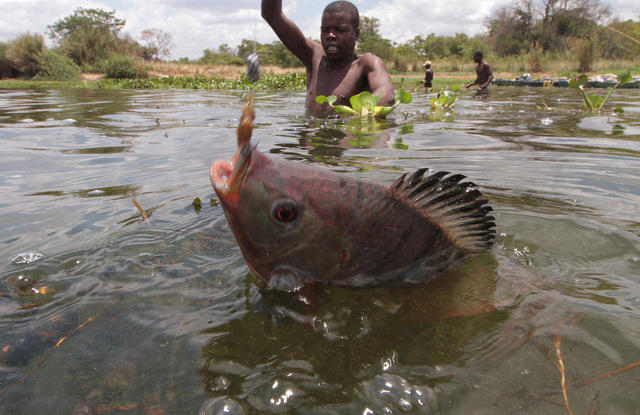
BY RICHARD MUPONDE
FISHERMEN on the Zambezi River have called for a moratorium on the issuance of fishing permits to new players in the kapenta fishing industry citing depletion of the fish stocks due to over-fishing.
The call has been reportedly made by fishermen from both Zimbabwe and Zambia to the Department of National Parks and Wildlife in Zambia and Zimbabwe Parks and Wildlife Management Authority (ZimParks).
Reports are that kapenta catches in Binga and Kariba were dwindling.
A rig owner and fisherman, Michael Mudimba, said the fishing area was now flooded with rigs and fisherman whose activities were threatening the sustainability of the industry.
“There are now a lot of rigs on the Zambezi River, including those of the Zambians. This has led to over-fishing and reduced catch. We used to catch four tonnes a month, but this has been reduced to two tonnes. We appeal for a stop to new players coming in until the situation improves,” Mudimba said.
Operators from both countries were reportedly in agreement on the issue, with reports that Zimbabwean fishermen wanted Zambia to address an imbalance that was shortchanging the Zimbabwe kapenta fishery.
Reports were that Zambians have over 800 rigs against about 400 run by Zimbabweans.
- Chamisa under fire over US$120K donation
- Mavhunga puts DeMbare into Chibuku quarterfinals
- Pension funds bet on Cabora Bassa oilfields
- Councils defy govt fire tender directive
Keep Reading
Contacted for comment, ZimParks spokesperson Tinashe Farawo said there was need for research to see whether or not kapenta was dwindling in the Zambezi River.
“The fishing business is a science-based business. One can’t wake up and say kapenta is dwindling without doing a research. We need to do a research and see what is really on the ground. The problem is that some permit holders sublet their permits which then leads to over-population of rigs in the water,” he said.
In the past, ZimParks proposed an annual three to four months’ moratorium on kapenta fishing in the river to ensure sustainability.
Article 6 of the protocol on economic and technical co-operation between the Zimbabwean government and Zambian, which speaks to management and development of fisheries on Lake Kariba and trans-boundary waters of the Zambezi River signed in 1999, states that the resource was to be shared according to the percentage of the lake each country holds.
This means that Zimbabwe was entitled to 55% and Zambia 45%.
Kapenta is a local delicacy, eaten as relish in many homes and is served as a snack or starter in hotels.











